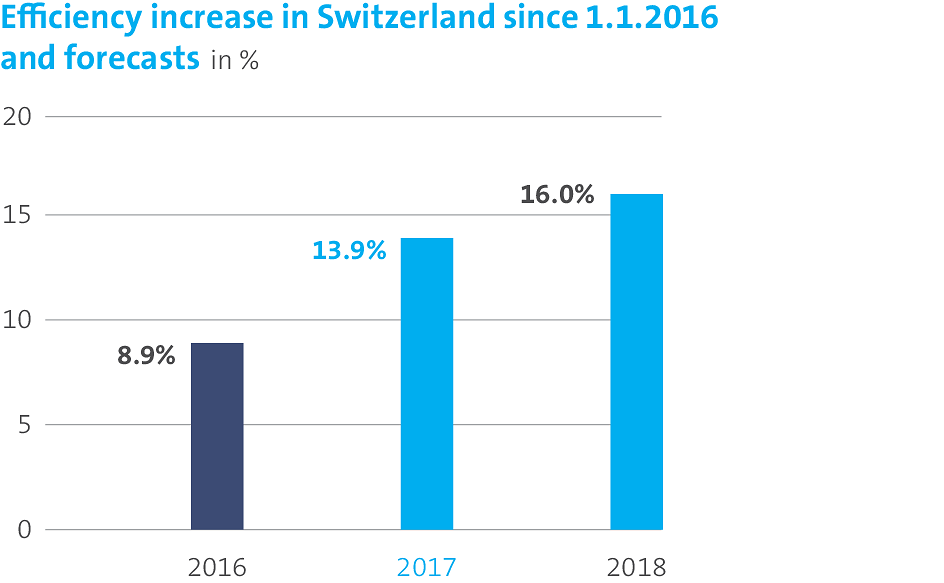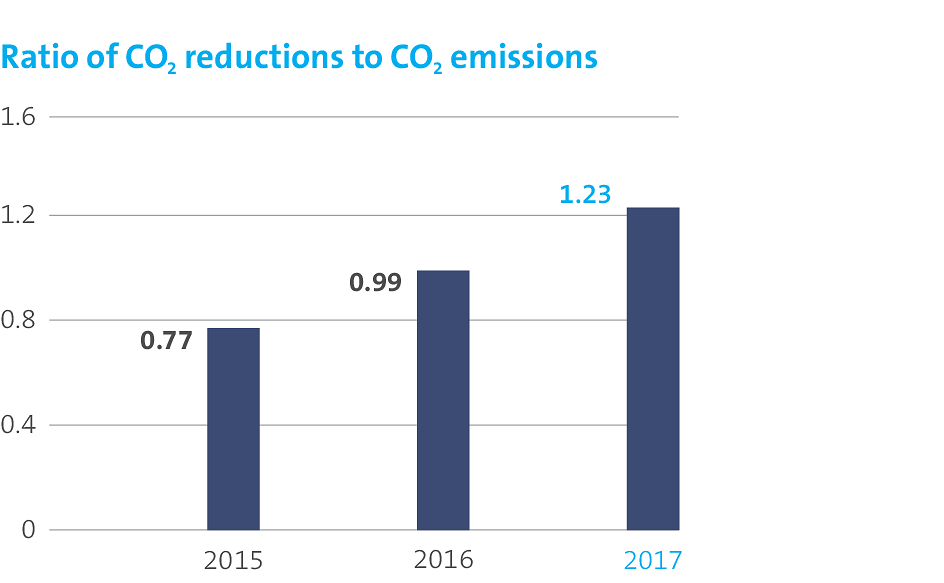Environment, objectives and management approach
The energy transition and climate change remain key issues for Swisscom and its stakeholder groups. The revised Energy Act, which underpins the Swiss Confederation’s 2050 energy strategy, was accepted at referendum by the Swiss population in May 2017. It intends to phase out nuclear power and promote renewable energies. It also calls for a consistent increase in energy efficiency and the transition to renewable energies. Swisscom places a special focus on increasing its own energy efficiency and on climate protection, and has set itself two objectives accordingly:
- Increased efficiency: Swisscom has determined its energy requirements until 2020 and plans to increase energy efficiency by 35% compared to 2016 by the end of 2020. This target is set out in a target agreement with the Energy Agency of the Swiss Private Sector (EnAW). Together with the other government-associated enterprises that are pursuing the Swiss Confederation’s 2050 energy strategy, Swisscom is also a member of the working group “Exemplary Role of the Confederation in Energy” (ERCE).
- Climate protection: Swisscom aims to work together with its customers to save twice as much CO2 as it emits throughout the entire company including the supply chain by 2020. This undertaking has been summarised as the “2:1 target”. The ratio between savings and emissions at the end of 2017 was around 1.23 (prior year: 0.99). Swisscom aims to achieve the “2:1 target” by reducing emissions and by promoting and marketing its sustainable portfolio.
Swisscom has reported its emissions reduction in 2016 to the Science Based Target Initiative (SBTI). The SBTI is a partnership between the Carbon Disclosure Project (CDP), the UN Global Compact initiative, WWF and the World Resources Institute (WRI). It classifies company reduction targets as “science-based” if they are in line with the level of decarbonisation required to keep the global temperature increase below 2°C. Swisscom is also committed to reducing its Scope 1 emissions by 10%, Scope 2 emissions by 100% and Scope 3 emissions by 18% compared to 2013 by 2020. The SBTI recognised all Swisscom’s reduction targets at the end of 2016.
See www.sciencebasedtargets.org

With regard to further environmental aspects that Swisscom takes into account in operations, further details can be found at the end of the section. The environment and purchasing policies form the basis of sustainable resource usage for Swisscom. Management norms, standards and internal directives allow the planned saving and efficiency measures to be systematically implemented. Swisscom subsidiaries with operations that are of significant environmental importance are ISO-14001-certified. These are Swisscom (Switzerland) Ltd, Swisscom Broadcast Ltd and cablex Ltd, which are also certified to ISO 9001. The Italian subsidiary Fastweb S.p.A. is also ISO-14001-certified. The management systems and processes certified to ISO 14001 include – with regard to the number of employees – more than 94.3% of the Swisscom Group (including Fastweb; prior year: 96.2%).